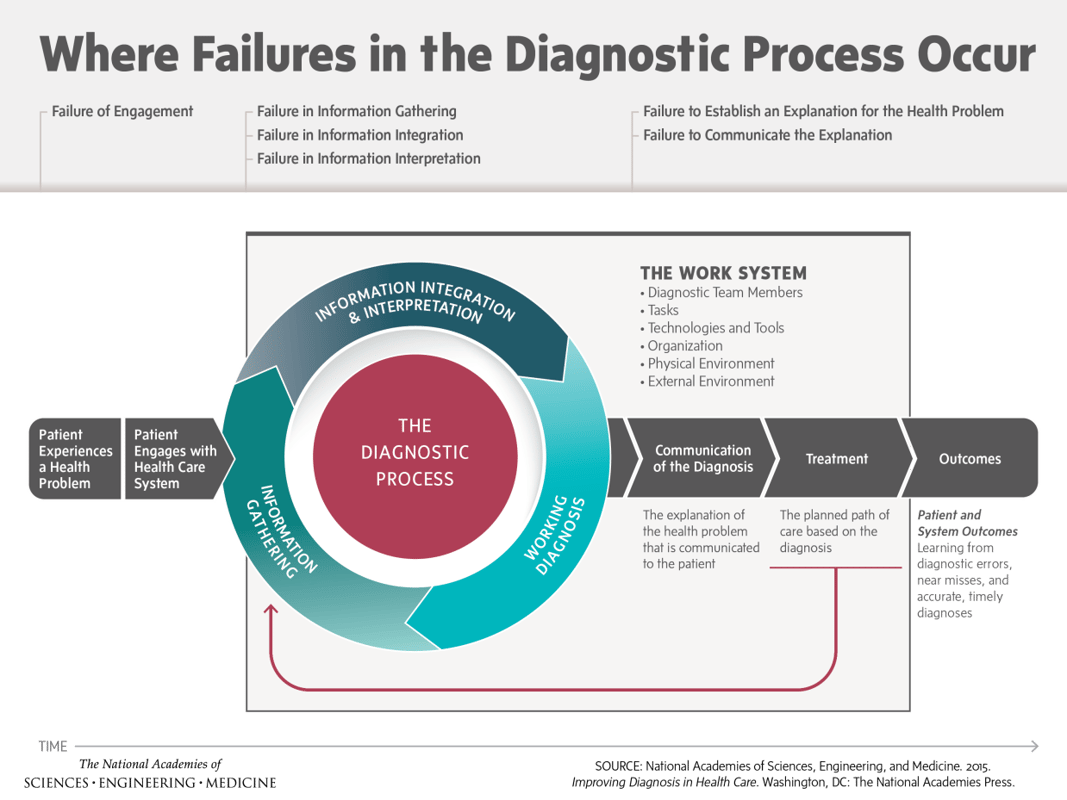Yesterday, the prestigious Institute of Medicine (IOM) announced a soon-to-be-released report highlighting diagnostic errors as a persistent “blind spot in the delivery of quality health care” and urges the healthcare industry to change in order to address the prevalence of diagnostic errors, which the IOM defines as “the failure to (a) establish an accurate and timely explanation of the patient’s health problem(s) or (b) communicate that explanation to the patient.”
The report synopsis available on the IOM website identifies several failure points in the clinical diagnostic process. Not surprisingly, it identifies information integration as a one of those failure points.
Central to a majority of diagnoses – accounting for about 75% of clinical decisions – clinical labs and diagnostic test results remain an area where providers continue to experience information integration challenges, despite best efforts to streamline communications with outside reference labs.
To learn how University of Wisconsin Health is addressing the integration challenge posed by outside clinical labs register for a Healthcare Informatics-sponsored webinar, Health Information Overload: Getting Discrete Clinical Data Out of PDF Attachments and into the EMR, sponsored by Extract Systems.
To read the full IOM press release click here.
http://iom.nationalacademies.org/Reports/2015/Improving-Diagnosis-in-Healthcare/Press-Release.aspx
To get a glance of the IOM report click here.
http://iom.nationalacademies.org/Reports/2015/Improving-Diagnosis-in-Healthcare.aspx
 Source:
Source: